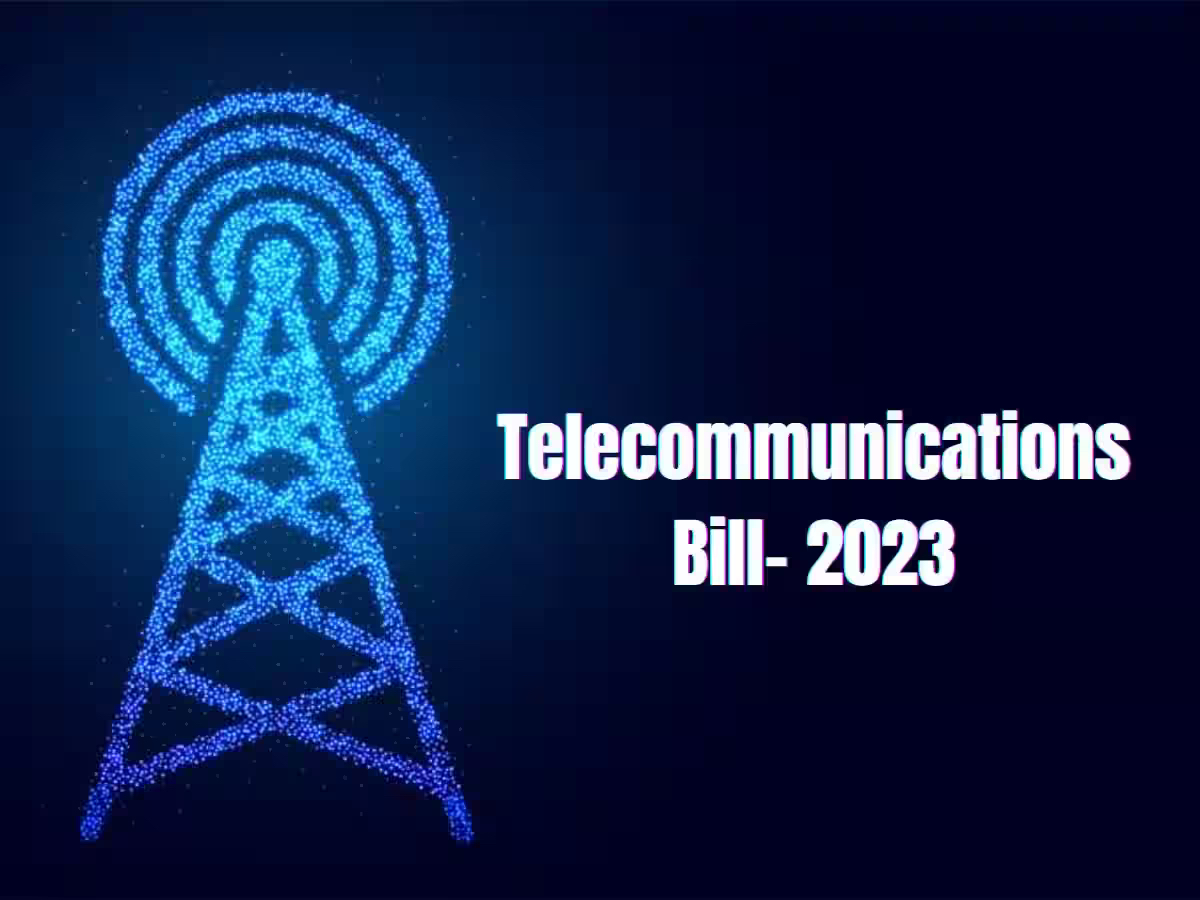Telecommunications Bill, 2023: The changes it seeks in the telecom sector, why some have raised concerns (Indian Express)

- 19 Dec 2023
Why is it in the News?
The Telecommunications Bill, 2023, was introduced in the Lok Sabha on Monday. The bill allows the government to take over, manage or suspend telecommunication services or a network over national security.
Key Features of the Telecommunications Bill, 2023
- Repeal of Existing Laws: The bill annuls the Indian Telegraph Act, 1885, the Indian Wireless Telegraphy Act, 1933, and the Telegraph Wires (Unlawful Possession) Act, 1950, while introducing amendments to the Telecom Regulatory Authority of India (TRAI) Act, 1997.
- Authorization for Telecom Activities: Central government approval is mandatory for telecommunication services, network establishment, operation, maintenance, expansion, or possession of radio equipment.
- Existing licenses remain valid for their granted period or five years if unspecified.
- Spectrum Assignment: Spectrum allocation, except for specific purposes, will be through auction.
- Exceptions include national security, disaster management, and services by state-owned entities.
- Interception and Search Powers: Messages may be intercepted, monitored, or blocked for public safety, emergencies, or specified grounds like state security and prevention of offences.
- Government's Extraordinary Powers: The government can take temporary possession of telecom infrastructure during public emergencies, with the authority to suspend telecom services.
- Authorized officers may search for unauthorized equipment.
- Standards Specification Authority: The central government can prescribe standards for telecom equipment, infrastructure, networks, and services.
- Right of Way for Telecom Infrastructure: Facility providers can seek a right of way over public or private property for telecom infrastructure on a non-discriminatory basis.
- User Protection Measures: The government may implement measures to protect users, including consent for specific messages, creation of Do Not Disturb registers, and a mechanism for reporting malware.
- TRAI Appointments and Experience Requirements: Amendments allow individuals with at least 30 years of professional experience to serve as TRAI chairperson and those with at least 25 years of membership.
- Digital Bharat Nidhi: The Universal Service Obligation Fund (USOF) is renamed Digital Bharat Nidhi, allowing its use for research and development (R&D).
- Adjudication Process: An adjudicating officer, of the rank of joint secretary and above, will handle inquiries and orders against civil offences.
- Appeals can be made to the Designated Appeals Committee and further to TDSAT.
- Offences and Penalties: The Bill outlines criminal and civil offences, imposing penalties and imprisonment for unauthorized telecom services, network access, and equipment possession.
- Civil penalties apply for breaches of authorization terms.
What are the Reasons behind the introduction of the Telecommunications Bill, of 2023?
- The telecommunications sector plays a pivotal role in fostering economic and social progress, serving as the conduit for digital services.
- Given its significance, the security of our nation relies substantially on the robustness of telecommunication networks.
- Hence, there is an imperative to establish a legal and regulatory structure that prioritizes the security and resilience of telecommunication networks, fostering a digitally inclusive trajectory for growth.
- The dynamic evolution of telecommunication, its patterns of use, and underlying technologies in recent years underscores the necessity for legislation that aligns with the evolving needs of our society.
